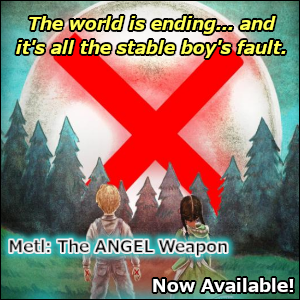What’s the difference between “situations” and “scenes” in a story?
And, even more importantly, why does it matter?
Let’s find out!
During the last stream, a subscriber requested that we do a stream about “the difference between situations and scenes.”
Watch the full video here or scroll down for highlights.
- There are MANY different ideas on what the difference is between “situations” and “scenes.”
- What follows is my personal interpretation of it after doing research and from my own experience
- If yours differs, that’s great!
What is a “situation?”
- A situation is the setup for thing to happen in a book
- Think about it like an improv group being given a situation:
- “You’re in a bar with a waitress who is a duck…”
- “You’re driving along when your car breaks down…”
- A situation is an overarching idea that connects scenes together. Over the course of the story, situations should build on each other and grow in intensity
What is a “scene?”
- A scene is the characters reacting to the situation
- For the improv group, it’s what they do after they’re given the situation:
- The customer in the bar asks the duck waitress for the “bill” and has a comical misunderstanding
- The person whose car broke down sure is lucky that their car comes alive and says it will fix itself if they sing a song
- A scene is a specific execution of a situation out of infinite possible ones. It should have its own mini beginning/middle/climax/end.
Let’s Take a Look at an Example!
- Most books are comprised of a few situations, each of which is comprised of many smaller scenes
- Let’s dissect Harry Potter and the Sorcerer’s Stone this way:
- (It’s not a perfect division or anything, it’s just to illustrate using an example.)
Harry Potter and the Sorcerer’s Stone Divided into Situations/Scenes
- Situation: Harry lives with his abusive aunt and uncle
- Scene: He’s dropped off as a baby by Dumbledore/Hagrid
- Scene: He cooks breakfast for Dudley on his 11th birthday
- Scene: They all go to the zoo together, where Harry accidentally releases the snakes
- Situation: Strange things start happening at the Dursleys
- Scene: Tons of letters start arriving until they eventually flood the house
- Scene: They run away, going to lots of places, until taking a boat to a lighthouse
- Scene: Hagrid breaks down the door and gives Harry his letter
- Situation: Harry finds out he’s a wizard
- Scene: Hagrid tells Harry about his parents/Voldemort
- Scene: They go to Diagon Alley, Gringott’s, Ollivander’s
- Scene: Then they go to Platform 9 ¾
- Situation: Harry goes to wizard school
- Scene: He’s sorted into a house after a conversation with the hat
- Scene: Snape hates him during potions class and Harry hates him back
- Scene: He makes friends with Ron and they save Hermione from the troll
- Situation: Harry finds out about the Sorcerer’s Stone
- Scene: They find out about it by sneaking out at night with Harry’s invisibility cloak
- Scene: Harry gets distracted researching by seeing his family in the Mirror of Erised
- Scene: But they get caught one night and sent to detention in the Forbidden Forest, where they see Voldemort eating a unicorn
- Situation: Harry and friends go to get the Stone before its stolen
- Scene: They think Snape is going after the Stone and go through the obstacle course to get to it before he does
- Scene: At the end Harry confronts the person who wants the Stone, but it’s not Snape, it’s Quirrel
- Scene: Harry defeats Quirrel/Voldemort using the love-shield his mother gave him, and he gets the stone from the Mirror of Erised obstacle
Situations vs. Scenes
- From beginning to end, the situations build on each other and grow in intensity, and the scenes each have their own mini beg/mid/climax/end.
- Throughout the book, the situations were mostly fixed. In order to tell the story, those certain situations mostly had to happen in that order.
- But the scenes were malleable and could’ve gone in a million different directions: how Harry’s life with the Dursley’s was shown, how he finds out he’s a wizard, what happens when he gets to Hogwarts, how they get to the Stone, etc.
- The scenes are just one possible execution of each situation, and they end up the way they are because of the characters and the author’s desires
Who Cares About Any of This???
- Before you write a story, dividing the plot into situations/scenes can help you outline it
- Or after you write a story, dividing it into situations/scenes can help you edit, figure out what to cut/add, and make sure that it’s going to hold the reader’s attention all the way through
- For a novel, you’ll likely want at least five situations, with at least three scenes for each, with each scene having a beg/middle/climax/end
- For a short story, you could have as few as one situation and one scene
After that, we came up with some situations and scenes ourselves, and chat then voted that we write this one: you are tasked with re-smithing the ceremonial sword.
Here’s what we came up with:
The blacksmith hammered away at Fateweaver, the ceremonial sword. His shop sweltered in one-hundred degree air, pumped by Pyra the eternal flame in the brick Heart of Creation that had burned for a thousand years.
Pyra and Fateweaver has been born as twins, Pyra’s fresh embers lapping forth the cold steel of the blade. Pyra was cursed to live forever in the forge, while Fateweaver traveled the world in the hands of warriors. Though he always returned back home to whisper tales to his older sister.
Now the blacksmith tempered the sword, hammering out the small dents and imperfections it had accumulated over its last adventure. Just as his master before him had, and the master before him. Each swing of his hammer reminded him of the misery in the world. Every dent a remnant of Fatebringer taking a bite out of some poor soul. Every stain a reminder of how many lives it had taken, and how many more it would take.
As he smoothed out the blade, the smith felt himself smoothing out the imperfections in the world itself. Every time he received the sword, he hoped it would have fewer imperfections to fix. He hoped it would show that they were closer to peace.
The amount of repair that Fatebringer needed now was a sign that, sadly, he would never see that day. Chips and fractures riddled Fateweaver’s spine, more numerous than the smith had ever seen before. They caught the light from the window, like so many stars in the night sky, as if delivering a pagan message of ill fortune.
The smith prepared to fire the blade in Pyra, turning it red-hot and malleable and ready to temper. He lifted the sword, heavy as a newborn, ready to resurrect it yet again.
Pyra was dead. The flame that had been burning for a thousand years, gone.
The smith dropped Fatebringer in shock, clanging it to the ground as he desperately peered into the Heart of Creation. He hoped that perhaps she had only dwindled down to a few sparks and could be relit. That had happened to his previous master, and thanks to a cup of cooking oil from the baker, had reignited her healthily.
There was nothing but ashes. Not even smoke. The smith didn’t know how this was possible. Over the centuries, Pyra had been doused in water, smothered in brick, drizzled with extinguishing salt, yet she had always burned bright.
Until now. The smith tried everything to bring her back. Stabbing the charcoal with the poker, reliting with flint. Nothing took. She was barren.
There was only one explanation. Pyra was trying to tell the smith something in the only language she knew. He couldn’t speak it as well as his old masters, but her tone was clear. He knew what he had to do.
Unfortunately, he didn’t stand a chance in doing it.
Just as the smith turned around to clasp Fatebringer and smash it in half, the sword was already plunged through his stomach. He never saw it move. No one did. Especially not whoever would be fixing him next, and handling him next.
Fatebringer rode the smith’s body down to the ground as it collapsed in a puddle of its own blood. He lapped up every last drop that he could, enjoying the metallic taste, as he had grown to over the last thousand years. Pyra had been disgusted by his change, swearing to refuse to fix him if he did not change. For centuries she’d bent to his will, but finally she’d made good on her promise.
No matter. He would find a new flame. A new smith. A new hand to wield his hungry body.
Be sure to check out the video to see how we came up with the scenes for this story!
If you want to join us and help write a story by trolling in chat, or share your own writing for feedback, then we’d love to have you join us on Twitch.
And you missed the stream, you can still watch them on the YouTube channel or watch the full stream reruns.
Hope to see you next time, friend!
 Featured image: Pakutaso (edited by me)
Featured image: Pakutaso (edited by me)
